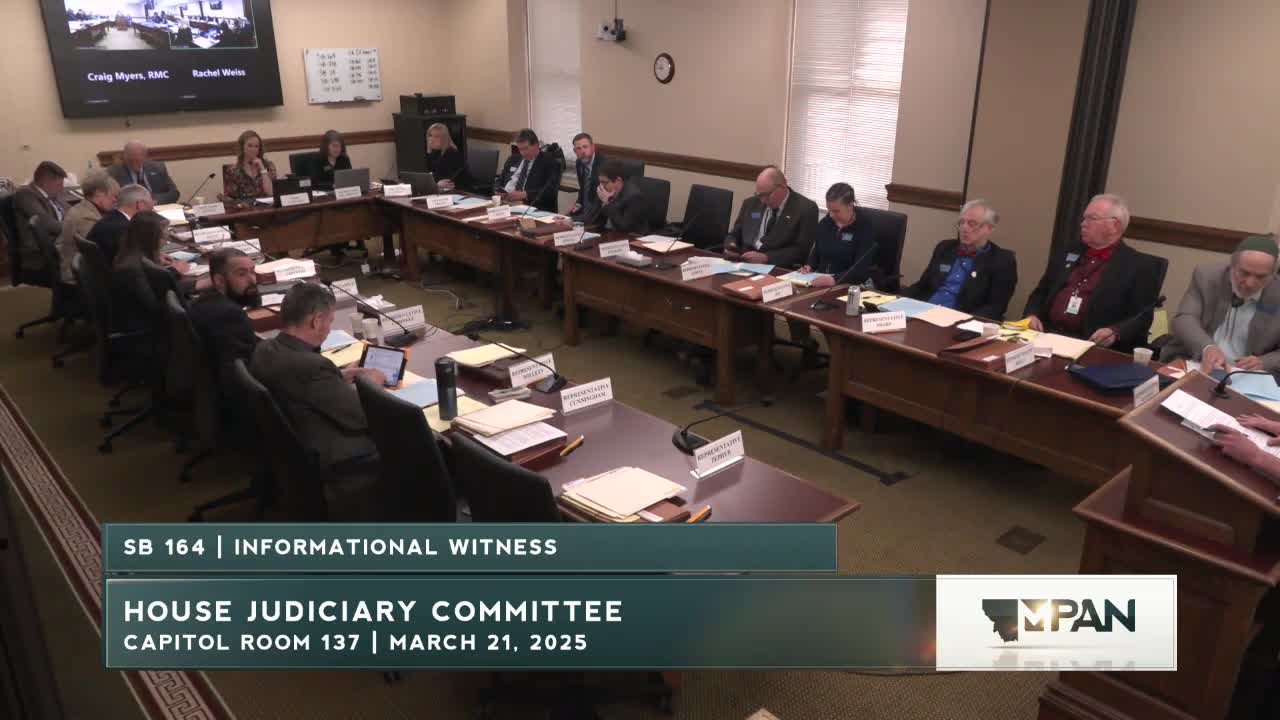Bills creating extended liability for gender‑dysphoria treatments draw sharply divided testimony
Get AI-powered insights, summaries, and transcripts
Subscribe
Summary
Senate Bill 218, proposing a private cause of action and an extended (25‑year) statute of limitations for harms tied to medical interventions for gender dysphoria, drew large turnout of proponents who described harmful outcomes and opponents who warned the bill would chill medical practice and burden Montana’s health system.
Senator John Fuller introduced Senate Bill 218 as a measure to create a private civil cause of action and extend the statute of limitations to allow people who say they were harmed by medical interventions for gender dysphoria to sue providers. He framed the bill as providing justice for people who later detransition or experience harms.
Proponents included several self‑identified detransitioners and former clinic staff who described irreversible harms. Jamie Reed, who testified to the committee as a former pediatric gender‑clinic employee, urged the Legislature to “say to these harmed patients that we see you” and supported a 25‑year limitation window. Several witnesses described surgical and hormonal complications and urged expanded legal remedies for those harmed.
Opponents included medical organizations, health‑care providers, civil‑liberties groups and many providers who warned the bill’s drafting would make Montana an inhospitable environment for physicians. Dr. Saul Rivard, president of the Montana Academy of Family Physicians, testified the bill would inappropriately insert government into the physician‑patient relationship and risk driving clinicians from the state. Opponents also noted existing medical malpractice laws allow suits for negligence and argued the proposed 25‑year strict‑liability model, broad attorney‑fee provisions and potential punitive awards would make malpractice insurance unavailable or unaffordable.
Witnesses for both sides disputed empirical claims about long‑term outcomes after gender‑affirming interventions. Proponents pointed to international policy reversals and selected studies they said showed increased post‑operative distress; opponents and several clinicians said those studies were being misread and that major medical societies support evidence‑based gender‑affirming care when clinically appropriate.
Committee members asked about the practical effects of the proposed statute of limitations, the likely workload impact on courts and defenders, and whether adult patients bringing suit decades later would create unintended consequences. The Office of the State Public Defender and the Department of Corrections provided informational testimony raising staffing and bed‑capacity concerns tied to expanded liability and potential changes to criminal statutes.
No committee action or vote appears in the transcript. The debate in the hearing emphasized two competing priorities: advocates seeking remedies for people they described as harmed by medical interventions, and medical and civil‑liberties groups who warned the bill would substantially change malpractice law and the health‑care market in Montana.
